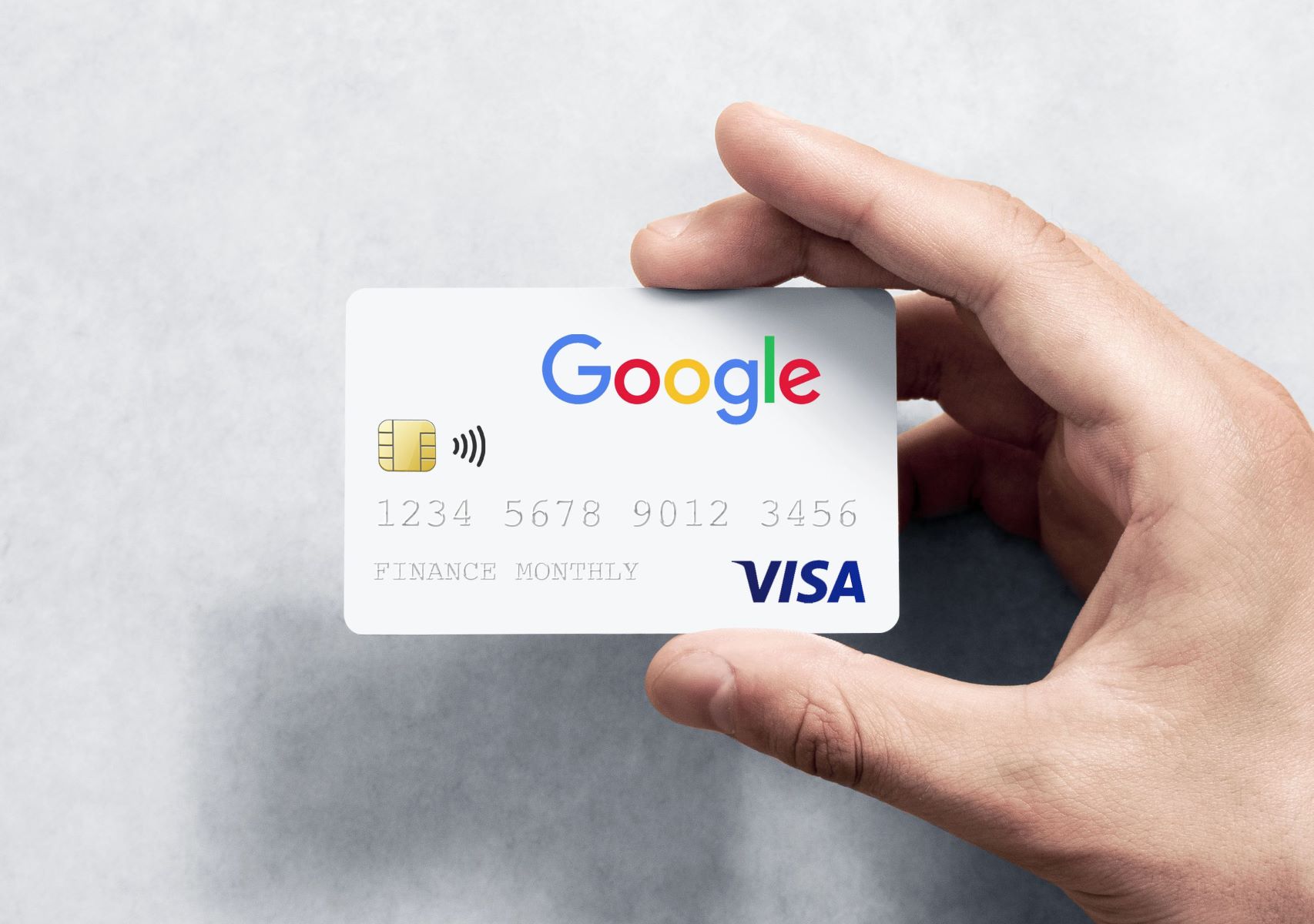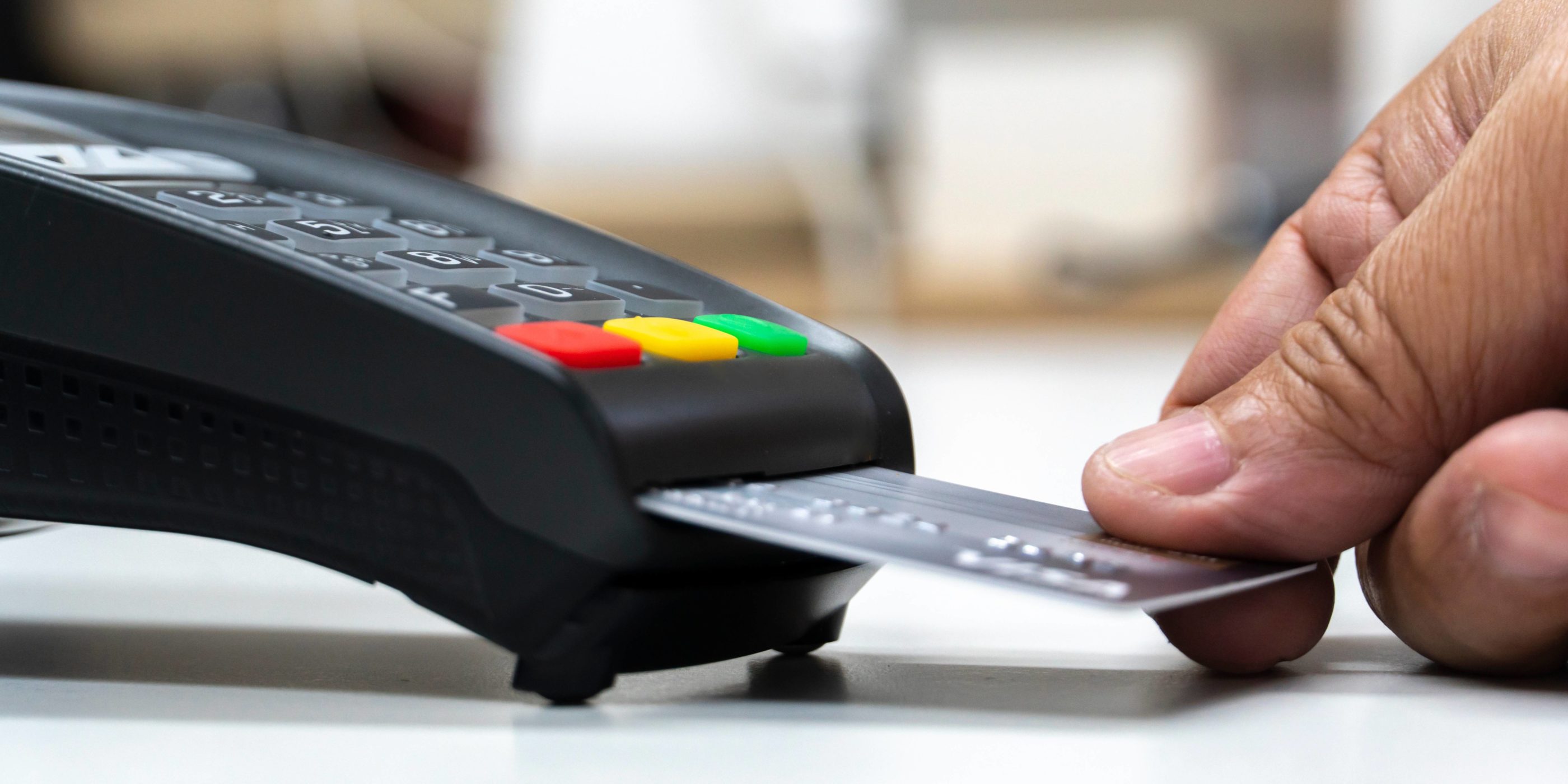

Finance
How Much Does Hertz Hold On Credit Card
Modified: February 21, 2024
"Learn about how Hertz holds funds on your credit card for car rentals. Discover the financial implications and strategies for managing this process."
(Many of the links in this article redirect to a specific reviewed product. Your purchase of these products through affiliate links helps to generate commission for LiveWell, at no extra cost. Learn more)
Table of Contents
- Introduction
- Understanding Hertz’s Credit Card Hold Policy
- Factors Affecting Hertz’s Credit Card Hold Amount
- Different Types of Credit Card Holds by Hertz
- How to Avoid or Minimize Credit Card Holds by Hertz
- Impact of Credit Card Holds on Available Credit and Spending Ability
- Tips for Dealing with Hertz’s Credit Card Holds
- Conclusion
Introduction
When it comes to renting a car, many travelers turn to Hertz for their reliable service and wide range of vehicle options. However, one aspect of renting from Hertz that can catch customers off guard is the credit card hold policy. Hertz, like many car rental companies, requires customers to provide a credit card for the security deposit and potential damages.
A credit card hold is a temporary transaction that freezes a certain amount of funds on your credit card, reducing your available credit limit. While this hold is usually released after the rental period is over and the car is returned in good condition, it is important to understand how much Hertz holds on your credit card and how it can impact your overall spending ability.
In this article, we will explore Hertz’s credit card hold policy in detail, including the factors that affect the hold amount, different types of credit card holds by Hertz, and tips for avoiding or minimizing the credit card hold. By understanding Hertz’s credit card hold policy, you can better plan and manage your finances when renting a car from this popular rental company.
Understanding Hertz’s Credit Card Hold Policy
When renting a car from Hertz, it is important to understand their credit card hold policy to avoid any surprises or inconvenience during your rental experience. Hertz, like most car rental companies, puts a hold on your credit card as a security measure and to cover any potential damages or additional charges that may arise during your rental period.
The amount that Hertz holds on your credit card can vary depending on several factors, including the type of car you are renting, the length of your rental period, and the location where you are picking up the rental. It is common for Hertz to hold a certain amount as a pre-authorization hold, which ensures that the necessary funds are available on your card.
It is important to note that the credit card hold is not an actual charge, but rather a temporary hold on your available credit limit. This means that the amount of the hold will not be deducted from your account unless you incur additional charges during your rental period. Once you return the car in the same condition that you received it, the hold will be released, and the funds will become available again on your credit card.
The duration of the credit card hold can also vary. While Hertz typically releases the hold shortly after the car is returned, it may take a few days for the hold to be fully removed, depending on your credit card company’s policies and processing times. It is advisable to check with your credit card provider regarding their specific timelines for releasing holds.
Understanding Hertz’s credit card hold policy is essential for managing your finances effectively during your car rental. By being aware of the potential hold amount and duration, you can plan your expenditures accordingly and ensure that you have sufficient available credit for other expenses.
Factors Affecting Hertz’s Credit Card Hold Amount
The credit card hold amount imposed by Hertz can vary based on several factors. Understanding these factors can help you anticipate the potential hold amount and manage your finances effectively during your car rental.
1. Type of Car: The type of car you are renting plays a significant role in determining the credit card hold amount. Luxury vehicles or larger, more expensive cars may require a higher hold amount compared to economy or compact cars.
2. Rental Duration: The length of your rental period can also impact the hold amount. Hertz may put a higher hold on your credit card for longer rental periods to protect against potential damages or additional charges.
3. Location: The location where you pick up your rental car can influence the credit card hold amount as well. Different Hertz branches or locations may have varying hold policies based on local regulations and market conditions.
4. Additional Services or Upgrades: If you choose to add extra services such as GPS navigation, child seats, or additional drivers, the hold amount on your credit card may increase accordingly. Similarly, upgrading to a higher car class during your rental period may also result in a higher hold amount.
5. Previous Rental History: Your rental history with Hertz may impact the credit card hold amount. If you have a previous record of returning their vehicles in good condition and on time, Hertz may be more lenient with the hold amount. Conversely, if you have had issues in the past, they may require a higher hold.
It is essential to keep in mind that while these factors can influence the credit card hold amount, they do not necessarily translate into additional charges or expenses. As long as you return the car in the same condition and abide by the rental agreement, the hold amount will be released, and you will not be charged beyond the agreed rental fee.
By being aware of these factors, you can anticipate the potential credit card hold amount and make necessary adjustments to your budget to ensure a smooth and stress-free car rental experience.
Different Types of Credit Card Holds by Hertz
Hertz employs different types of credit card holds depending on the specific circumstances of your rental. Understanding these different types of holds is crucial for managing your finances and ensuring a smooth rental experience.
1. Pre-Authorization Hold: This is the most common type of credit card hold used by Hertz. When you pick up the rental car, Hertz places a pre-authorization hold on your credit card for a specific amount. This hold ensures that the necessary funds are available on your card to cover the rental charges, potential damages, and additional fees that may arise during your rental period.
2. Fuel Deposit Hold: If you choose not to pre-purchase fuel or fail to return the car with a full tank, Hertz will charge you for the missing fuel along with an administration fee. To cover these costs, Hertz may put a fuel deposit hold on your credit card. The hold amount will depend on the local fuel prices and the tank capacity of the rental car.
3. Debit Card Hold: Hertz allows customers to use a debit card as a form of payment for their rentals. However, if you choose to use a debit card, Hertz may place an additional hold on your account to secure the rental. This hold is in addition to the estimated rental charges and can affect your available funds until the hold is released after returning the car.
4. One-Way Rental Hold: If you are renting a car from one location and returning it to another (known as a one-way rental), Hertz may impose a higher credit card hold amount. This is to account for potential logistics and transportation costs associated with returning the vehicle to its original location.
It is important to note that these credit card holds are temporary and the actual charges will be determined once the rental period is over and the car is returned. If there are no additional expenses or damages, the hold amount will be released, and you will only be charged for the agreed-upon rental fee.
Understanding the different types of credit card holds by Hertz will help you anticipate the potential holds and manage your finances accordingly. It is always recommended to read and familiarize yourself with the rental agreement and to contact Hertz directly if you have any specific questions about their credit card hold policies.
How to Avoid or Minimize Credit Card Holds by Hertz
While credit card holds are a standard practice in the car rental industry, there are steps you can take to minimize the impact or potentially avoid them altogether when renting from Hertz.
1. Use a Credit Card: Using a credit card instead of a debit card can provide more flexibility and protection when it comes to credit card holds. Credit cards typically have higher spending limits, and their holds are less likely to impact your available funds compared to debit card holds.
2. Choose a Lower Car Class: Renting a smaller or more economical car can help reduce the credit card hold amount. Higher-end or luxury cars usually require larger holds because of their higher value and potential repair costs.
3. Pre-Purchase Fuel: To avoid a fuel deposit hold, consider pre-purchasing the fuel from Hertz. This ensures that you return the car with a full tank and eliminates the need for an additional hold for fuel charges.
4. Consider Rental Insurance: Adding rental insurance to your reservation can help protect you from potential damages or additional charges. This may reduce the credit card hold amount as Hertz is more confident in covering any unforeseen expenses through the insurance policy.
5. Join Hertz Gold Plus Rewards: Becoming a member of the Hertz Gold Plus Rewards program may provide you with benefits such as expedited rentals and potential reductions in credit card hold amounts. The program is free to join, and you can accumulate points towards future rentals as well.
6. Build a Positive Rental History: Hertz takes into consideration the rental history of customers. If you have a history of returning their vehicles in good condition and on time, they may be more lenient with the hold amount. Building a positive rental history can lead to a smoother rental experience with lower hold amounts.
While it may not always be possible to completely avoid credit card holds, following these tips can help minimize their impact and ensure a more seamless experience when renting from Hertz. Remember to review the rental agreement thoroughly and communicate directly with Hertz if you have any specific concerns or questions about credit card holds.
Impact of Credit Card Holds on Available Credit and Spending Ability
Credit card holds imposed by Hertz can have a significant impact on your available credit and spending ability during the rental period. Understanding this impact is crucial for managing your finances effectively.
When Hertz places a hold on your credit card, the hold amount is temporarily deducted from your available credit limit. This means that you will have a reduced credit limit until the hold is released. It is essential to keep this in mind when planning your expenditures during the rental period to avoid exceeding your available credit.
If you have a relatively low credit limit or if the hold amount is substantial, it is possible that the credit card hold may limit your spending ability for other purchases or transactions during the rental period. It is important to account for this reduction in available credit and adjust your budget accordingly.
Furthermore, credit card holds can also impact your credit utilization ratio, which is the percentage of your available credit that you are using at any given time. Higher credit utilization ratios can potentially have a negative impact on your credit score. However, keep in mind that as long as the hold is released and you don’t incur additional charges, the impact on your credit score should be minimal.
One way to mitigate the impact of credit card holds on your available credit and spending ability is to plan your finances strategically. Consider setting aside additional funds specifically for the hold amount to ensure that you have enough available credit for other expenses. Monitor your credit card activity regularly to keep track of the hold and its impact on your overall credit utilization.
Once you return the car in the same condition and meet the terms of the rental agreement, Hertz will release the hold, and the funds will become available again on your credit card. However, it is important to note that the actual release of the hold may take a few days as it depends on your credit card provider’s policies and processing times.
If you are concerned about the impact of the credit card hold, consider contacting Hertz directly to discuss the hold amount or explore alternative payment options. Hertz may be able to provide you with more information and assistance based on your specific situation.
By understanding the impact of credit card holds on your available credit and spending ability, you can better plan and manage your finances during the rental period with Hertz.
Tips for Dealing with Hertz’s Credit Card Holds
Dealing with credit card holds can be a concern for many renters when renting from Hertz. However, with some careful planning and proactive measures, you can navigate this process more smoothly. Here are some valuable tips to help you deal with Hertz’s credit card holds:
1. Plan your budget: Before renting a car from Hertz, review your finances and set a budget for the trip. Take into account the potential credit card hold amount and ensure that you have enough available credit for other expenses during the rental period.
2. Communicate with Hertz: If you have any concerns about the credit card hold amount, reach out to Hertz directly and inquire about their policies. They may be able to provide guidance or discuss options based on your specific circumstances.
3. Consider multiple credit cards: If you have multiple credit cards, consider using one with a higher credit limit for the car rental. This can help accommodate a higher hold amount without affecting your available credit for other expenses.
4. Monitor your credit card activity: Regularly check your credit card statements online to keep track of the hold amount and ensure that it is released in a timely manner once the rental is complete. Report any discrepancies or issues to both Hertz and your credit card provider.
5. Read the rental agreement: Thoroughly review the rental agreement before signing to understand Hertz’s policies regarding credit card holds, fuel charges, and other potential fees. Having a clear understanding of the terms will help you make informed decisions and avoid unexpected surprises.
6. Consider alternative payment options: If you are concerned about credit card holds, explore alternative payment options such as using a different credit card, using a travel credit card that offers rental car insurance coverage, or even using a cash deposit (if permitted by Hertz).
7. Inspect the car thoroughly: Before accepting the rental car, carefully inspect it and note any existing damages or issues on the rental agreement. Taking photos of the car can also serve as evidence in case of disputes regarding damages and potential charges.
8. Return the car on time and in good condition: To ensure the prompt release of the credit card hold, return the rental car on time and in the same condition as when you received it. Follow all instructions provided by Hertz regarding refueling and any other applicable requirements.
By following these tips, you can navigate Hertz’s credit card hold process more effectively and minimize any potential inconveniences during your car rental. Remember to stay informed, communicate with Hertz when needed, and plan your finances accordingly to have a hassle-free rental experience.
Conclusion
Understanding Hertz’s credit card hold policy is essential for anyone planning to rent a car from this popular rental company. By being aware of the factors that affect the hold amount, different types of holds, and strategies for dealing with them, you can better manage your finances and make informed decisions.
Credit card holds are a standard practice in the car rental industry and serve as a security measure for the rental company. While they may temporarily reduce your available credit limit and impact your spending ability, it is important to remember that they are not permanent charges and will be released once the rental period is over.
To effectively navigate Hertz’s credit card hold policy, remember to plan your budget, communicate with Hertz if you have any concerns, and consider alternative payment options if available. Additionally, inspecting the car thoroughly before and after the rental period and adhering to the rental agreement can help minimize any potential disputes or additional charges.
By following the tips provided in this article, you can mitigate the impact of credit card holds and ensure a smoother rental experience with Hertz. It is always recommended to read and understand the rental agreement, communicate with Hertz directly, and monitor your credit card statements to stay informed about any holds or charges.
Remember, while credit card holds may seem inconvenient, they are a necessary part of the car rental process to protect the rental company and customers alike. By being prepared and informed, you can confidently rent a car from Hertz and enjoy your journey with peace of mind.














